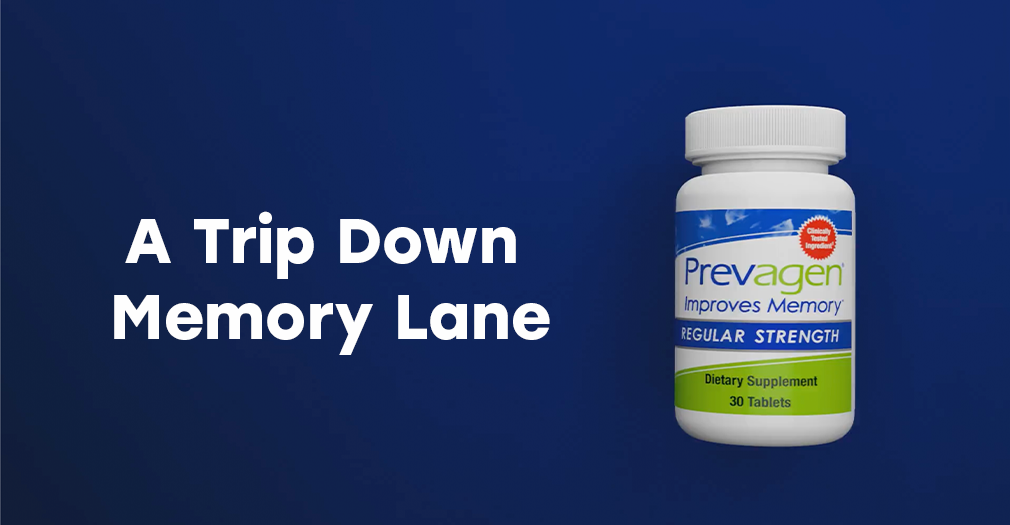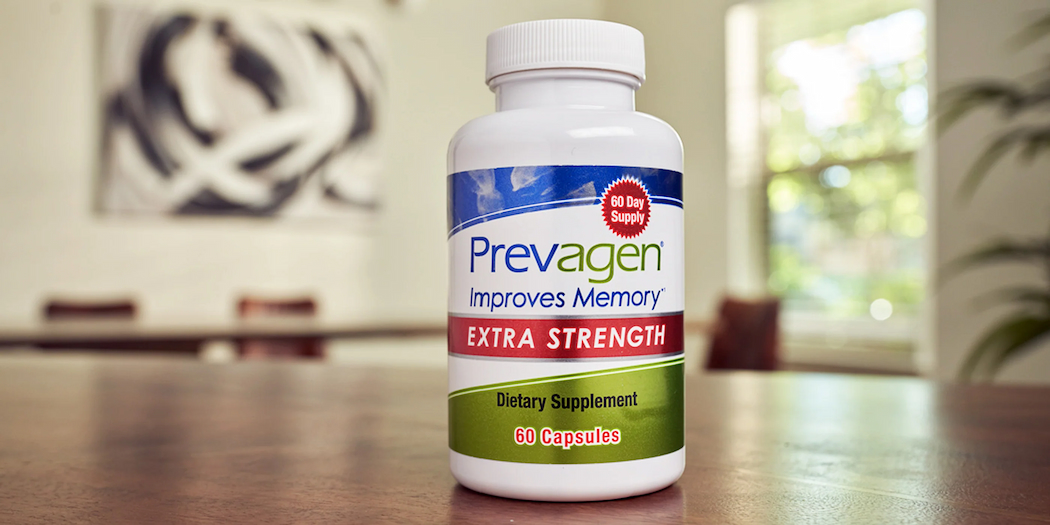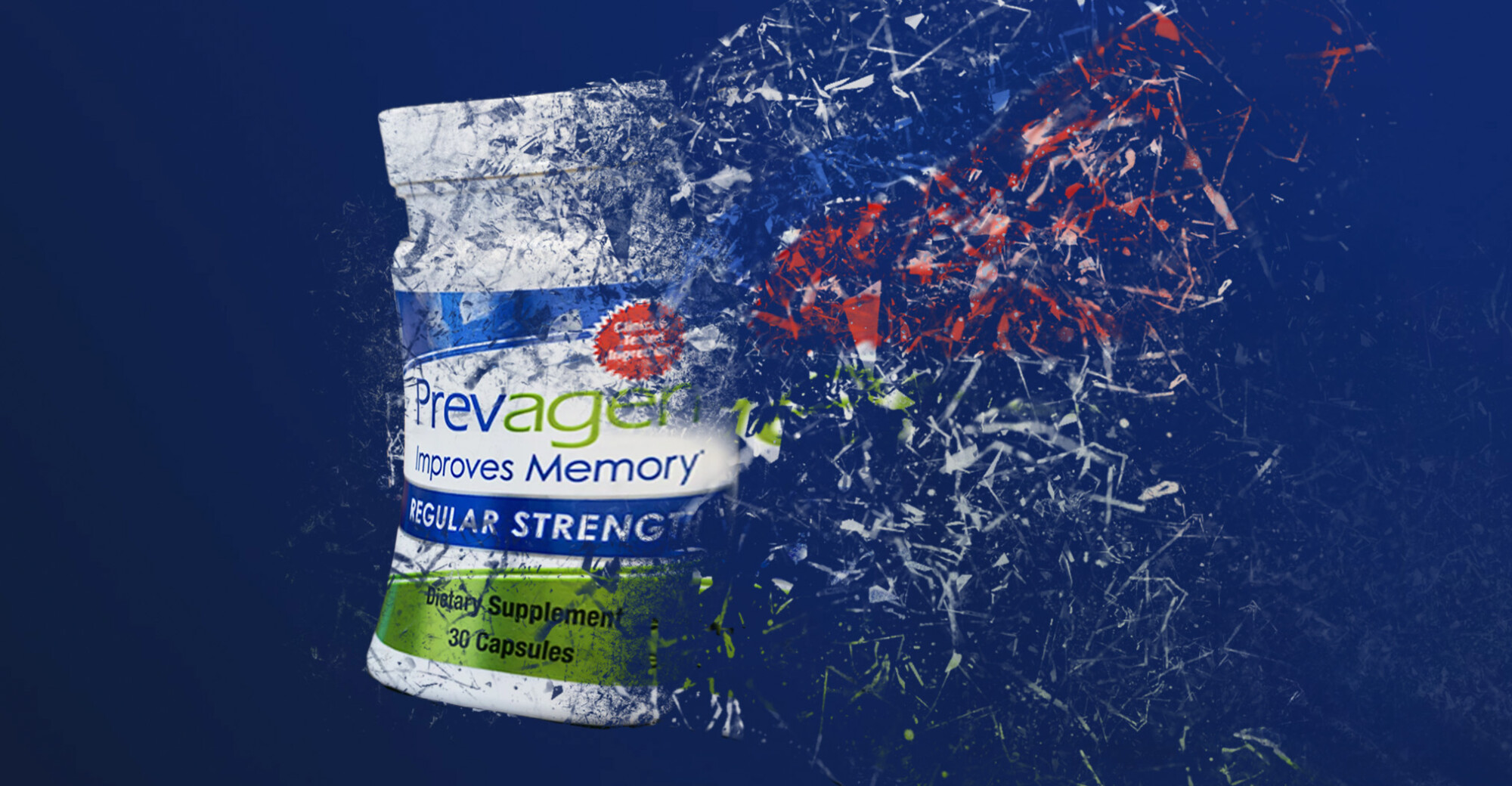
Jury Hands Down Verdict in Prevagen Deceptive Marketing Case
Verdict comes nine years after TINA.org alerted regulator to supplement's unsubstantiated health claims.
|

UPDATE 12/13/24: Quincy Bioscience has been ordered by a federal district court to immediately remove all of the challenged claims in the FTC and New York attorney general’s case involving the marketing of Prevagen, including claims that the supplement “improves memory.” While indicating that it will appeal the decision, Quincy has already removed memory-improvement claims from its marketing. Our original article follows.
Last week, a federal jury in the New York attorney general’s case against the maker of Prevagen, a purported brain supplement that is deceptively marketed as able to improve memory, gave us something to celebrate, at least in part.
After a two-and-a-half-week trial, the jury determined that Wisconsin-based Quincy Bioscience violated New York state laws by advertising Prevagen as able to reduce memory problems associated with aging and, relatedly, as being “clinically shown” to reduce memory problems associated with aging, claims the jury found were unsubstantiated and “materially misleading” to consumers.
As for the other marketing claims at issue (that Prevagen can – and is clinically shown to – improve memory, improve memory within 90 days and provide other cognitive benefits, including but not limited to healthy brain function, a sharper mind and clearer thinking), the jury found that the claims were not supported by competent and reliable scientific evidence and had the capacity or tendency to deceive consumers but that the claims were not “materially misleading.”
History
The verdict comes seven years after the New York attorney general and the FTC filed a lawsuit against Quincy accusing the company of making false and unsubstantiated claims in national TV commercials and other marketing materials regarding Prevagen’s ability to improve memory and provide other cognitive benefits. And nine years after TINA.org filed a complaint against Quincy with the FTC urging the agency to halt the company’s deceptive marketing campaign for Prevagen. (The FTC’s claims did not go to the jury. Stay tuned for updates on that front, as well as whether monetary damages will be awarded on New York’s claims.)
In the intervening years, as brain health supplement sales have surged, TINA.org has continued to pay close attention to the Prevagen case, weighing in when necessary.
For example, after a federal district court dismissed the case in September 2017, eight months after the FTC and New York sued Quincy, TINA.org and other consumer groups filed a legal brief in support of reversing the dismissal. TINA.org and its partners argued that the district court erred in its interpretation that post hoc analyses conducted by a team of researchers assembled by Quincy constituted competent and reliable scientific evidence – the legal standard for health claims like “improves memory.” These analyses cherry-picked data from a completed study called the Madison Memory Study that found Prevagen wasn’t any better than a placebo at improving memory in order to make the opposite, unsupported argument that Prevagen does improve memory.
In February 2019, an appellate court reversed the dismissal by the district court, giving the FTC and New York the green light to proceed with their lawsuit. During oral arguments before the court, Quincy acknowledged (not for the first time) that the Madison Memory Study failed to show a statistically significant improvement in the experimental group over the placebo group as a whole.

In September 2021, the FTC’s claims for monetary relief in the case were dismissed in the wake of the Supreme Court’s April 2021 opinion in AMG Capital Management v. FTC holding that the FTC does not have the authority to obtain consumer redress under Section 13(b) of the FTC Act. And this is precisely why the FTC’s claims did not go to the jury – in cases seeking injunctive relief only, there is no right to a trial by jury.
Meanwhile, TINA.org continues to receive complaints from consumers about why Quincy is allowed to continue marketing Prevagen as a memory supplement in the absence of scientific evidence supporting its claims.
Quincy’s take
In a statement published on its website last week, Quincy painted the verdict as a slam dunk, saying it was “pleased that a federal jury in New York concluded today that the New York Attorney General failed to prove its deceptive advertising and labeling case against Quincy Bioscience’s key advertising claims for Prevagen, including the claim that Prevagen ‘improves memory.’”
But as we’ve just discussed, that isn’t the full picture.
Neither the New York attorney general nor the FTC have yet to issue a press release about the verdict. The parties have 60 days to file an appeal.
Find more of our coverage on brain supplements here.
You Might Be Interested In

NCPW 2025: Fighting against Deceptive Marketing
If you’ve been misled by an ad, regulators want to hear from you. We do too.

Best Reader Tips of 2024
Consumer complaints worth remembering.

Prevagen Scrubs Memory-Improvement Claims Following Court Order
What led up to brain supplement’s December to remember.